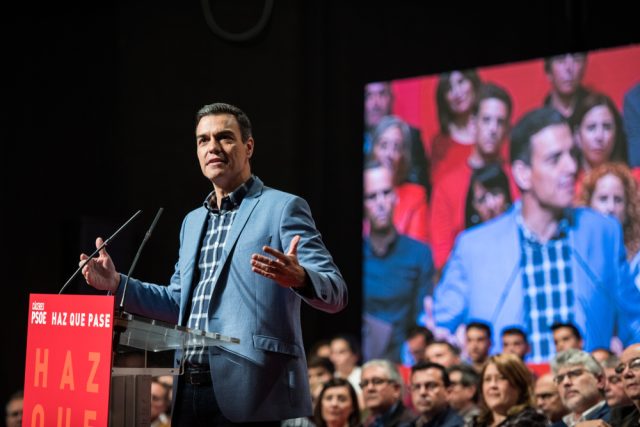
The President of the Government, Pedro Sánchez, took advantage of the celebration of Constitution Day to open the door to the reform of the crime of embezzlement. The announcement took place in a week of scarce parliamentary activity and with a low media attention from the public opinion that has taken advantage of the long weekend of the Constitution to go on vacation and disconnect from the political news. In addition, the elimination of Spain from the World Cup in Qatar has monopolized most of the front pages and national headlines in recent days.
Thus, we arrive at Friday, December 9, which is the deadline for the parliamentary groups to present the amendments they consider appropriate to the reform of the Penal Code. President Sánchez’s statements confirm that the PSOE is considering studying the proposal of Esquerra Republicana de Cataluña (ERC) to reform the crime of embezzlement in the Penal Code.
The interest behind the reform
Reforming the crime of embezzlement is no coincidence. On the contrary, it is subject to obvious political reasons.
ERC, after achieving the reform of the crime of sedition, now intends to promote the reform of the crime of embezzlement with the aim of eradicating the penalties of disqualification. Its main leader, Oriol Junqueras, is currently disqualified for embezzlement. The pro-independence party argues that Junqueras should never have been tried for embezzlement.
The reform of embezzlement is part of the price that Pedro Sanchez pays to remain in power. In ERC they are well aware of the fragility of the Government and take advantage of it to influence the PSOE to push their own agenda.
But the PSOE does not leave no stone unturned and, after having publicly acknowledged its intention to evaluate the reform of embezzlement, they are going to try to make it benefit the former president of Andalusia, José Antonio Griñán. This, together with Manuel Chaves, has been sentenced to six years in prison for prevarication and embezzlement of public funds in the case of the ERE of Andalusia. For the PSOE, neither Griñán nor Chaves are corrupt, but they built a whole network of irregular public aid for the good of the region.
With this conviction, both PSOE and ERC have insisted that the reform will not benefit those accused of corruption. In other words, that it will only benefit those they wish.
A positive embezzlement
The lesson to be drawn from this political move is that the Government considers that there is a good embezzlement and a bad embezzlement. The embezzlement of Griñán and Junqueras is bearable because “they did not benefit personally”. That is to say, there was not, according to the PSOE and ERC, a corrupt will in their crime.
What the Government has not yet detailed is how they are going to implement such arbitrariness in the Spanish Penal Code to avoid a massive review of convictions for embezzlement. In light of what happened with the entry into force of the “Solo Sí es Sí” law, experts predict a period of legal uncertainty for those accused of embezzlement who are currently serving sentences.
The opposition accuses the Government of defending a “good” embezzlement and of entrusting the reform of the Penal Code to the pro-independence supporters. They place all their hope in the municipal elections next May and in the general elections which will probably be held at the end of next year. But, given the volatility of current Spanish politics, in May the reform of embezzlement will be a matter of the past.



 Subscribe
Subscribe